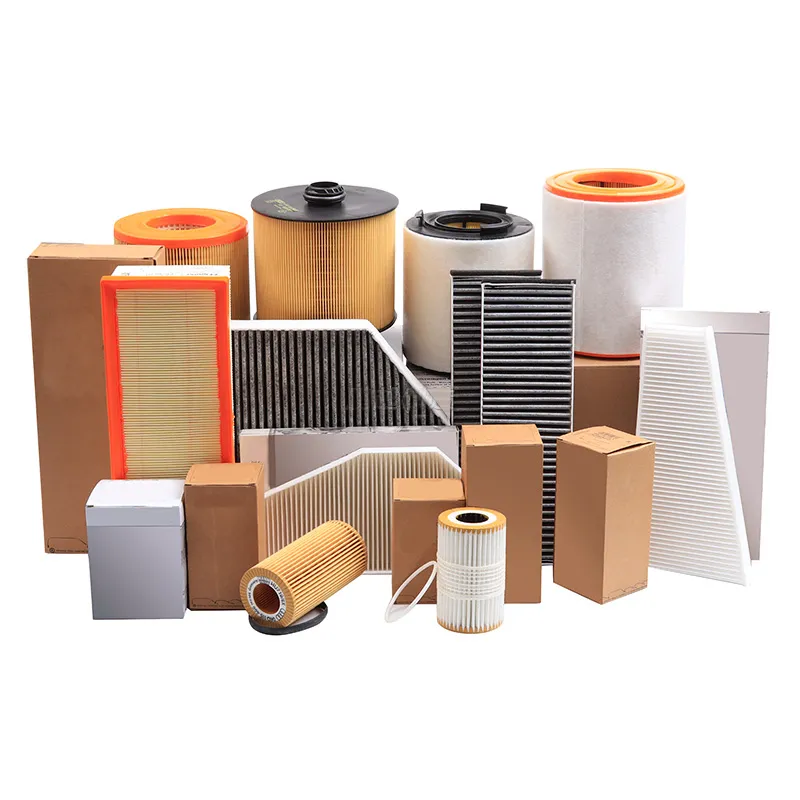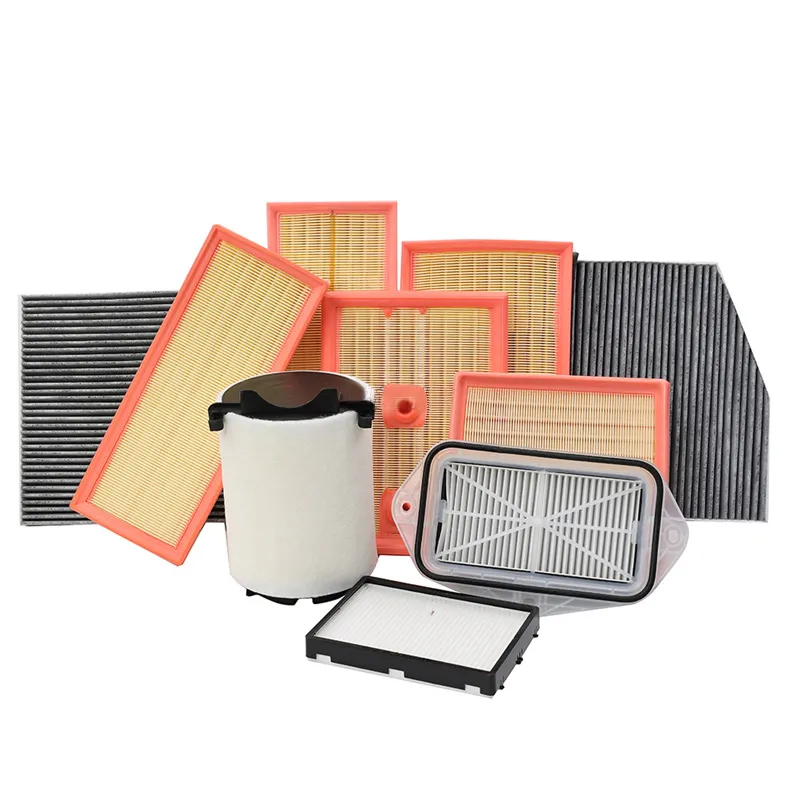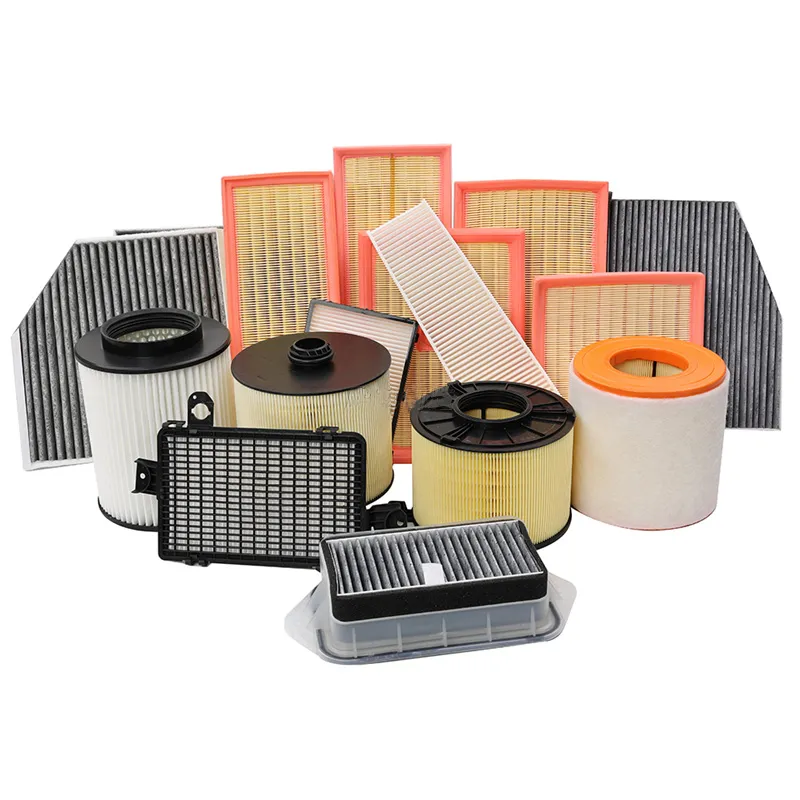
Brought to you by Qinghe Jiayou Automotive Parts Co., Ltd
Website: https://www.jyfilter.com
Tel: +8615132982898
Mobile: 15132982898
Address: Niujiatun Village, Gexianzhuang Town,
Qinghe County, Xingtai, Hebei Province, China.
1. Introduction: Significance of Gasoline Filter Screen in Modern Automotive Engineering
The gasoline filter screen is a critical element in the fuel system of modern vehicles. It prevents contaminants such as particulates, rust, and debris from entering the combustion chamber, thus protecting the engine and fuel injectors. With the automotive industry's evolution towards efficiency, durability, and environmental concerns, automotive filters have become more sophisticated—integrating nanomaterials, multi-layer mesh, and advanced composite structures.
Recently, industry reports indicate a steep rise in demand for high-performance auto filters due to stricter emission regulations and the proliferation of direct fuel injection systems (SAE Technical Papers). As a recognized manufacturer, Qinghe Jiayou Automotive Parts Co., Ltd develops and supplies advanced gasoline filter screens meeting global technical standards.





2. Gasoline Filter Screen Technical Specification Table
| Parameter | Specification Range | Typical Material | Standard Compliance |
|---|---|---|---|
| Filtering Precision | 5μm – 60μm | 316L Stainless Steel Mesh, Nylon PA66 | SAE J905, ISO 4020 |
| Burst Pressure | ≥ 600 kPa | Micro-welded Mesh, Composite Plastic Body | SAE J1647 |
| Operating Temperature | -40°C to +125°C | Heat-stabilized Thermoplastics | AEC-Q200 |
| Flow Rate | 25–110 l/h | Low-Resistance Design | OEM/ODM Customization |
| Filtration Efficiency | 98.7% @ 10μm | Multi-layer Filtration Net | DIN 71460-1 |
| Fuel Compatibility | Petrol, Ethanol E10/E85, Methanol blends | Anti-corrosive Coating | ASTM D4814, EN 228 |
3. Gasoline Filter Screen Technical Parameter Trends (2018–2024)
4. Application Scenarios: Where Are Gasoline Filter Screens Used?
- Passenger Cars & SUVs: Consistent fuel flow and injector protection for city, long-haul, and off-road driving environments.
- Commercial Vehicles: Enhanced reliability against diesel/gasoline contaminants, vital for logistics and transport fleets.
- Racing & Performance Cars: High-precision filtration at superior flow rates for motorsport applications.
- Hybrid & New Energy Vehicles: Adaptation for ethanol/methanol blends and electronic injection systems.
- Construction & Agricultural Machinery: Protection against particulate and water ingress in high-dust environments.
5. Product Spotlight: Automotive Engine Air Filter
Product Introduction: The Automotive engine air filter stands as a key component in the automobile's air intake system. Its advanced filtration ensures that contaminants—dust, dirt, particles—are efficiently separated from the fresh air entering the engine, protecting vital moving parts and maintaining optimal combustion, fuel economy, and engine life.
- Filter Media: High-efficiency multi-layer synthetic paper and nonwovens
- Frame Material: Polyurethane (PU) or ABS, high temperature resistance
- Filtration Efficiency: >99.5% for particles ≥2μm
- OEM Standards: Meets/exceeds ISO/TS16949, ISO 5011
- Compatibility: Wide range of car makes and models; strong aftermarket application
- Customizable: Available in various sizes/specs; supports custom branding
6. Automotive Engine Main Technical Index Data Visualization
7. Professional FAQ on Gasoline Filter Screen & Automotive Filters
-
Q1: What materials are commonly used in gasoline filter screens?
A: Industry-preferred materials include 316L stainless steel mesh, nylon (PA66), and heat-stabilized engineering plastics. These ensure corrosion resistance and long-term stability under harsh fuel and temperature conditions. [source] -
Q2: What is the standard filtering precision for auto gasoline filter screens?
A: Filtering precision typically ranges from 5μm to 60μm. Latest OEM specs demand ≤10μm for modern direct injection engines, as per SAE J905. -
Q3: How is burst pressure tested, and why does it matter?
A: Burst pressure is the maximum pressure the filter can withstand without failing, usually >600 kPa. It’s tested by gradually increasing internal fluid pressure (per SAE J1647), ensuring filter reliability during pressure surges. -
Q4: What are the recommended installation standards for automotive gasoline filter screens?
A: Installation must comply with ISO/TS16949, and filters should be positioned upstream of fuel injectors or pumps, using vibration-damping mounts and anti-leakage fittings. -
Q5: Which factors affect a filter’s flow rate?
A: Flow rate depends on mesh area, porosity, and structural resistance. Advanced low-resistance media design ensures proper fuel delivery (typical: 25–110 l/h). -
Q6: What’s the difference between an auto oil filter and a gasoline filter screen?
A: The auto oil filter is designed to remove contaminants from lubricating oil, while the gasoline filter screen is tailored for removing particulates from fuel. Both utilize advanced filtration media but with different chemical compatibility and flow dynamics. -
Q7: How do industry trends influence gasoline filter screen development?
A: Rising fuel injection pressures, tighter emission standards, and alternative fuel usage (ethanol/methanol) require filters with finer precision, robust material, and higher burst pressure. Reference: SAE Automotive Filtration Handbook.
To discover the latest market-tested gasoline filter screen designs, visit our Automotive Engine product page.
8. Conclusion: Industry Trends and Authoritative Perspectives
The gasoline filter screen represents a vital technology in safeguarding engine longevity and ensuring compliance with ever-stricter global emission standards. With the emergence of advanced nano-mesh materials, real-time clogging sensors, and composite constructions, the future of automotive filters promises even greater efficiency and durability. Leading manufacturers like Qinghe Jiayou Automotive Parts Co., Ltd drive innovation by adhering to top-tier specifications and continuous R&D investment.
Recommended Industry References:
- Industry Trends: Automotive Filter Organization Forum – Fuel Filter Developments
- Authoritative Publication: SAE International – Automotive Filtration Handbook (SAE R-514)
- Scientific Review: ScienceDirect – Automotive Filters Technology
- Peer-reviewed Paper: Recent Advances in Automotive Filtration – ResearchGate
-
Vehicle Performance with Premium Car Filter SolutionsNewsJul.02,2025
-
Upgrade Engine Performance with Timely Air Filter MaintenanceNewsJul.02,2025
-
Optimize Vehicle Health with Timely Air Filter ReplacementNewsJul.02,2025
-
Every Drive with Next-Level Car Filtration SystemsNewsJul.02,2025
-
Driving Comfort with Advanced Air Filtration SystemsNewsJul.02,2025
-
Cleaner with Next-Generation Automotive Air FiltrationNewsJul.02,2025
-
The Importance of Cabin Filter and Engine Filter: The Role and Maintenance of Cabin Filter and Engine FilterNewsJun.25,2025
Related Products




